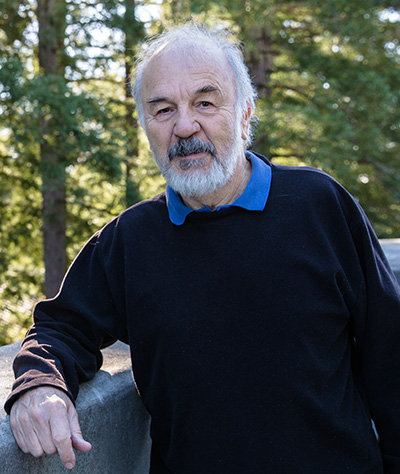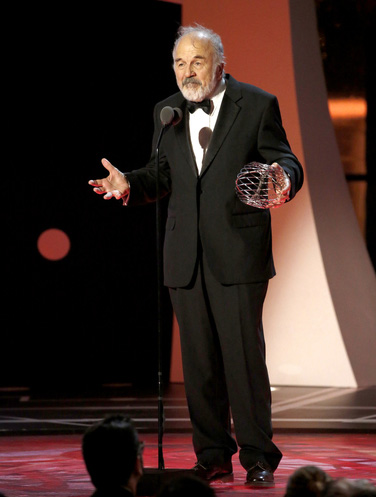Harry Noller, the Sinsheimer Professor of Molecular Biology at UC Santa Cruz, is the winner of a $3 million Breakthrough Prize in Life Sciences for revealing how the complex molecular machines called ribosomes translate genetic code and build the proteins in all living cells.
The award will be presented Sunday evening, December 4, at a star-studded ceremony at the NASA Ames Research Center in Silicon Valley. The ceremony, to be broadcast live at 7 p.m. Pacific Time on the National Geographic Channel, will be hosted by Academy Award-winning actor Morgan Freeman. The Breakthrough Prizes were founded in 2013 by Silicon Valley entrepreneurs Sergey Brin and Anne Wojcicki, Mark Zuckerberg and Priscilla Chan, and Yuri and Julia Milner.
"Harry Noller has performed a tour de force in molecular biology for the past 50 years," said UC Santa Cruz Chancellor George Blumenthal. "This recognition is well-deserved."
Practical applications
Noller's research group was the first to solve the complete structure of a ribosome, publishing landmark papers in 1999 and 2001. More recent work in his lab has shown how the ribosome actually works to carry out protein synthesis. This research has practical applications because many antibiotics work by blocking the activity of bacterial ribosomes. Understanding the structure of the ribosome has enabled the development of novel antibiotics that hold promise for use against germs that have developed resistance to current drugs.
Noller's discoveries also shed light on fundamental questions about the origins of life. Ribosomes are ancient structures that provide the link between the genetic instructions encoded in DNA and RNA molecules and the proteins that carry out most of the activities of living cells.
Each ribosome is composed of both proteins and RNA molecules interlaced together. When Noller first proposed in the 1970s that the RNA component performs the ribosome's key functions, the idea met stiff resistance because only proteins were thought capable of catalyzing biochemical reactions. But he turned out to be right.
Paradigm shift
"This was a huge paradigm shift. It turned our understanding of molecular biology upside down," said Noller, a professor emeritus of molecular, cell and developmental biology. "Many people in molecular biology now believe that life originated in an RNA world. In other words, RNA was doing everything, before proteins and even DNA came along."
The Breakthrough Prize recognizes Noller "for discovering the centrality of RNA in forming the active centers of the ribosome, the fundamental machinery of protein synthesis in all cells, thereby connecting modern biology to the origin of life and also explaining how many natural antibiotics disrupt protein synthesis."
The Breakthrough Prizes in Life Sciences are funded by a grant from Sergey Brin and Anne Wojcicki's foundation, The Brin Wojcicki Foundation; a grant from Mark Zuckerberg's fund at the Silicon Valley Community Foundation; a grant from Jack Ma's Foundation; and a grant from the Milner Foundation.
For more information about Harry Noller and the Breakthrough Prize, see:




